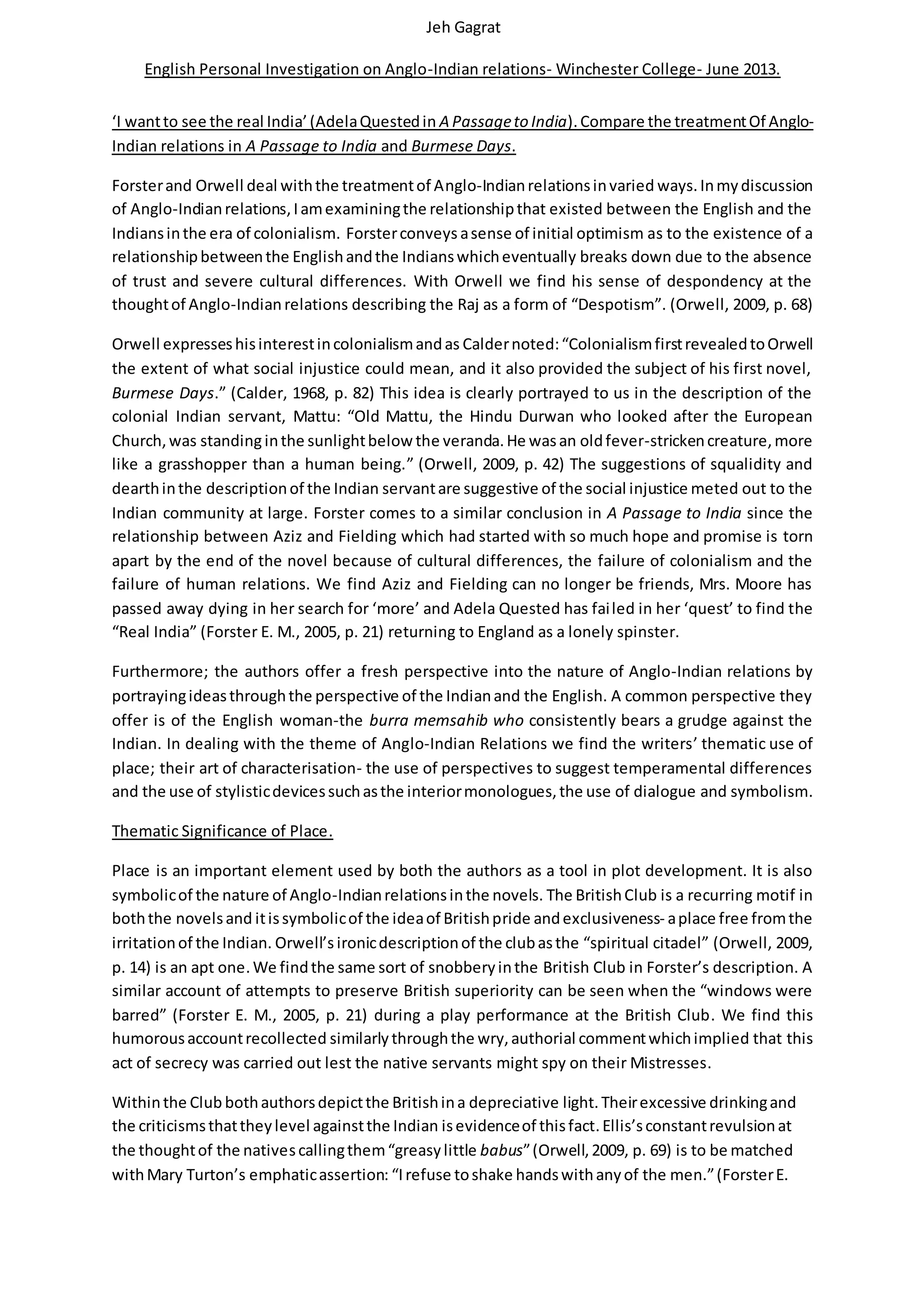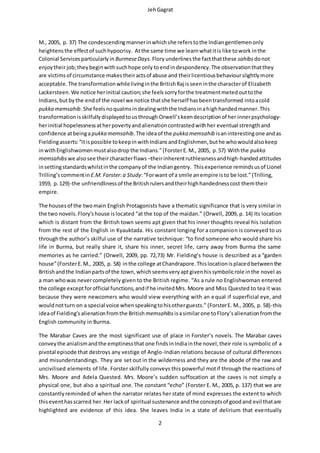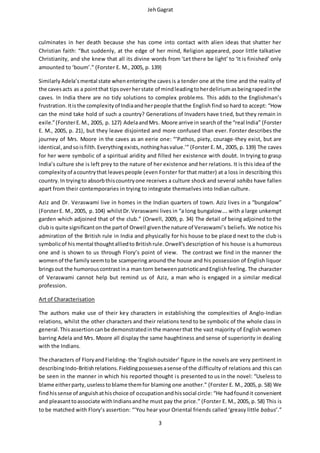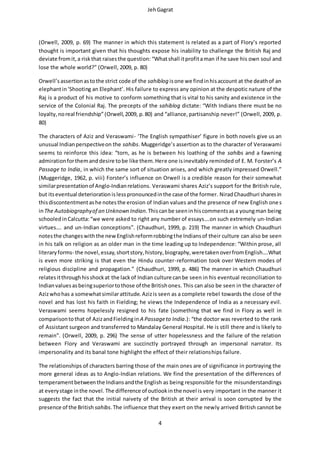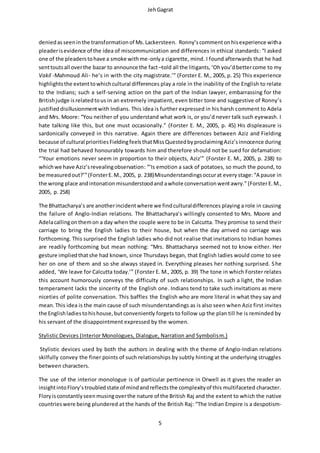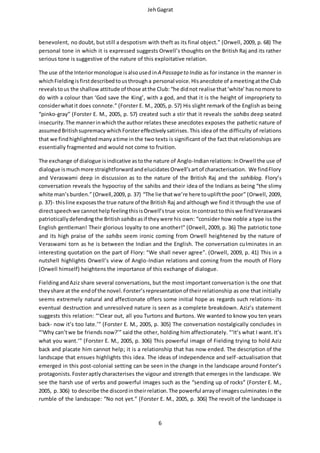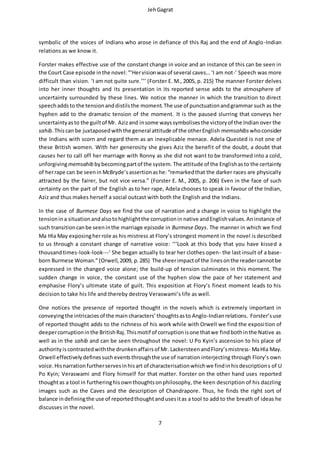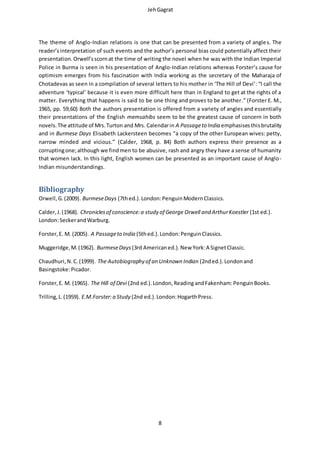This document provides a comparison of the treatment of Anglo-Indian relations in E.M. Forster's A Passage to India and George Orwell's Burmese Days. It discusses how both authors portray the complex relationship between the British colonists and Indian people during the colonial era. Key places like the British Club and Marabar Caves are used symbolically. Character types like the "outsider" Englishmen Flory and Fielding and sympathetic Indians Aziz and Veraswami represent different perspectives. Overall, both novels convey the failure of human relations and cultural understanding between the British rulers and Indian population under the colonial system.
